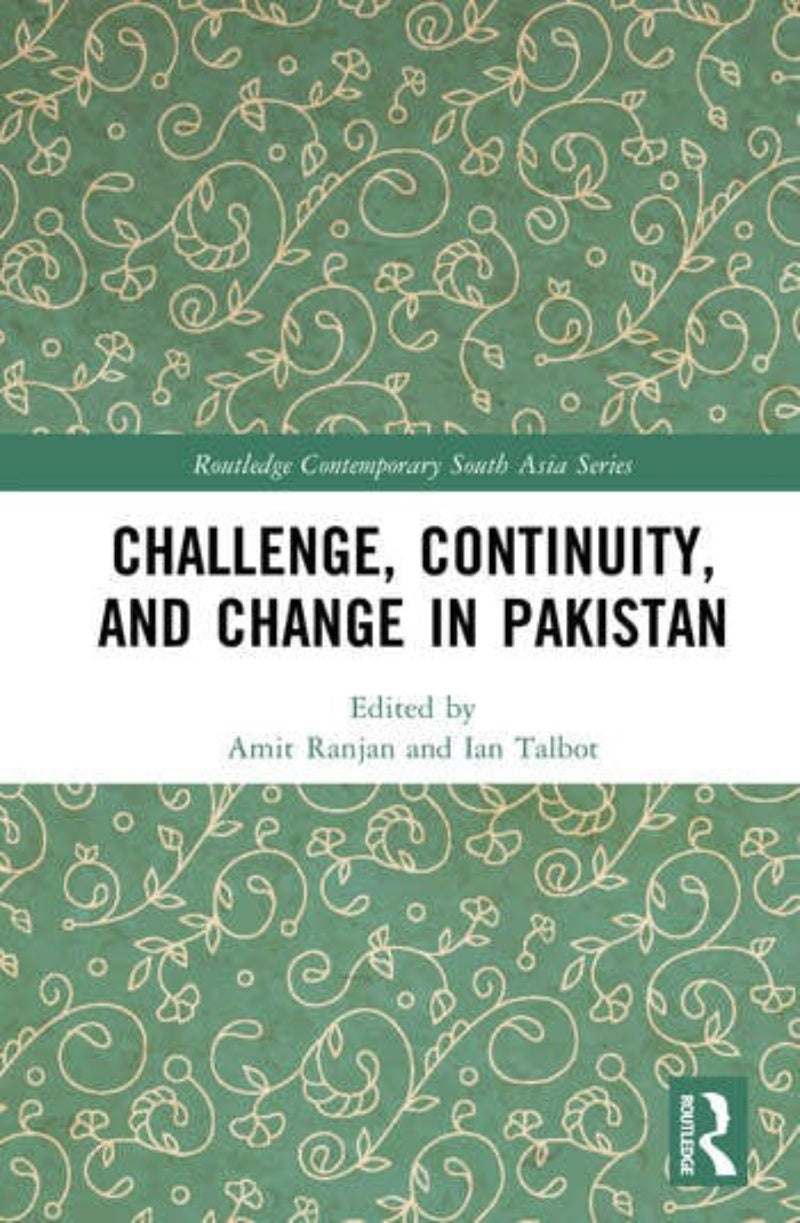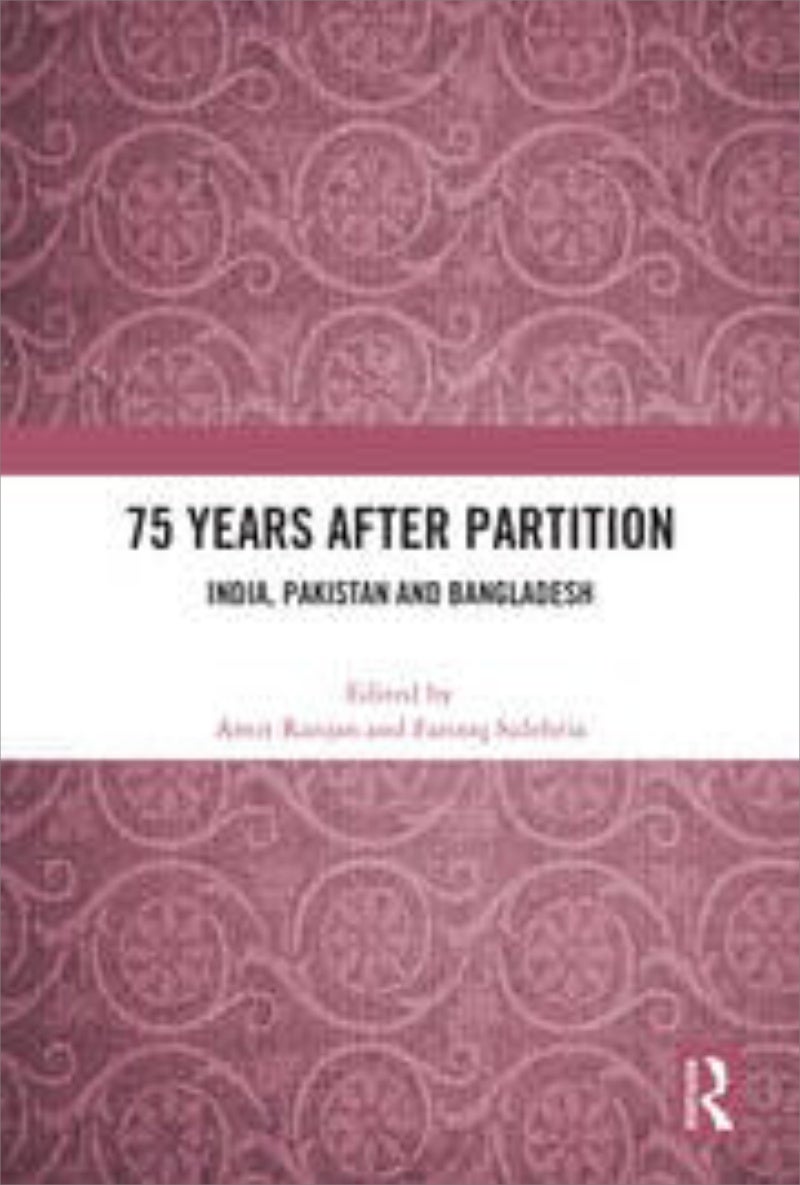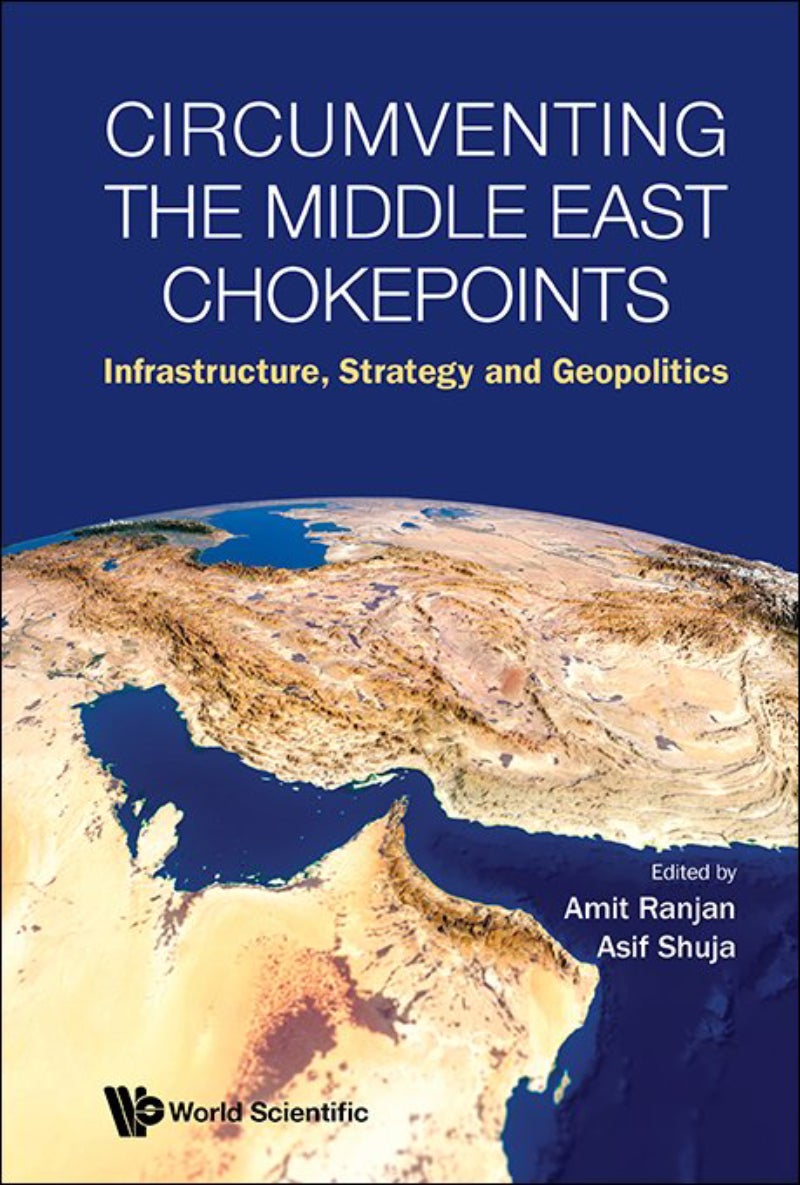
| Title: | Challenge, Continuity and Change in Pakistan |
| Author/s: | Amit Ranjan, Ian Talbot |
| Abstract: | This book brings a multi-disciplinary approach to studying Pakistan’s contemporary political, social and environmental challenges. It offers insights from various disciplines to show the interconnectedness of many of Pakistan’s problems and their historical roots.
The analysis includes issues of political alienation and exclusion, vulnerability to climate change-induced disasters and how such challenges might be mitigated. The case studies in the book reveal that reality is complex and that demographic, social, and technological change is moving apace in Pakistan. This dynamism points to another aspect of Pakistan and its resilience in the face of manmade and natural disasters. An increasingly youthful and urbanised population is challenging social inequalities and power structures whilst the state attempts to respond in old ways to maintain order and stability. The emergence of overseas Pakistani communities and their connectedness with the homeland is another growing development with ramifications for politics and society. A significant contribution on critical affairs in Pakistan, this book investigates if the country is moving towards a critical crossroads in its development. It will be of interest to historians and political scientists of Modern South Asia, as well as geographers interested in examining impact of climate change. |
| Date: | 5 November 2025 |
| More From: |

| Title: | Nepal 2043: The Road to Prosperity |
| Author/s: | Sujeev Shakya |
| Abstract: | Nepal is poised as never before to embark on an incredible future. The past two decades has seen unprecedented economic growth despite the challenges propped up by frequent changes in government, tumultuous political transitions, earthquakes, floods, blockades and to top it all, the pandemic. There is little written about this change as negative narratives cloud contemporary writings on Nepal.
Moreover, there’s something uniquely exciting about where Nepal can go from here on. Drawing from practical experiences and academic insights, this book presents a compelling vision for Nepal’s future, exploring key areas such as hydropower, agriculture, tourism, migration and digital transformation. It argues that with a sixfold increase in GDP over two decades, Nepal is actually poised to scale even greater heights in the years to come. Positioned strategically between China and India, and supported by a robust diaspora, this not-so-small country has the potential to transform into a high-income country by 2043. There is change brewing among its youth who are ready to play a more active role in transforming the country’s politics and economy. It is, therefore, only a matter of time before all this untapped potential is leveraged. While this book is about Nepal’s potential, it is also a playbook for emerging economies. |
| Date: | 30 September 2025 |
| More From: |

| Title: | 75 Years After Partition India, Pakistan and Bangladesh |
| Author/s: | Amit Ranjan, Farooq Sulehria |
| Abstract: | This book explores how the 1947 Partition of British India not only divided people and territories but also deepened cultural rifts in postcolonial India, Pakistan and Bangladesh, especially between Hindus and Muslims. The colonial "divide and rule" strategy, which intensified religious divides, laid the foundation for ongoing tensions. Even as the 75th anniversary of Partition approached in 2022, this cultural segregation remains prevalent. Over the years, mass media such as films, press and television have significantly evolved in India, Bangladesh, and Pakistan, playing a pivotal role in manufacturing, disseminating and perpetuating the narrative of cultural differences based on religion. These cultural platforms have gained even more influence with the rise of majoritarian nationalism in both India and Pakistan.
The chapters in this volume analyse how language, cinema, and textbooks contributed to the divide instead of bridging gaps, and why unresolved questions from the Partition continue to affect the region. The chapters cover the communalization of Hindi and Urdu, how textbooks in India, Bangladesh, and Pakistan narrate Partition, the role of mass media in India and Pakistan in presenting Partition, and the portrayal of Partition in films across India, Bangladesh, and Pakistan. This book is aimed at students, researchers and scholars interested in postcolonial studies, South Asian history, cultural studies, and media analysis. |
| Date: | 24 July 2025 |
| More From: |

| Title: | Circumventing the Middle East Chokepoints |
| Author/s: | Amit Ranjan, Asif Shuja |
| Abstract: | This book examines the impact of chokepoints in Middle East geopolitics. In the last few years, as the number of conflicts and political tensions in the Arab world and countries surrounding the Gulf has increased, chokepoints as a tactic to hinder the "enemy" have become more prominent. To evade the chance of getting "choked", regional actors with the support of extra-regional countries are investing in new port infrastructures such as at Duqm, Gwadar and Chabahar. This book investigates the geopolitical significance of old, new and under-construction seaports in the Middle East region. |
| Date: | 31 March 2025 |
| More From: |

| Title: | Divergent Worlds |
| Author/s: | Amitav Acharya, Manjeet S. Pardesi |
| Abstract: | In this book Amitav Acharya and Manjeet S. Pardesi compare the interplay of power and ideas in the ancient Mediterranean and Indian Ocean to explain why the two regions took divergent paths to peace and stability. While the ancient Mediterranean order was shaped by the hegemony of Rome, the Indian Ocean developed an open and inclusive international order without the dominance of any single power. Moreover, the Indian Ocean provides a more robust example of the peaceful spread of ideas and culture in contrast to the ancient Mediterranean, where Hellenization, or the spread of Greek ideas, was often accompanied by violence and imperialism.
Applying the divergent experiences of the two regions, the authors argue that the history of the Indian Ocean before European colonization offers a more useful framework for reshaping world order as the U.S.- and Western-dominated Liberal International Order comes to an end. The Indian Ocean framework points to an alternative model of order building—a multiplex rather than a multipolar approach—that could sustain efforts to build peace and stability in the emerging Indo-Pacific region. |
| Date: | 14 January 2025 |
| More From: |
Load more


